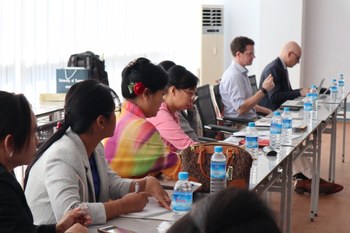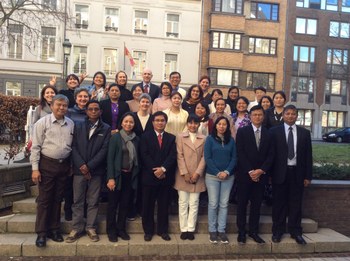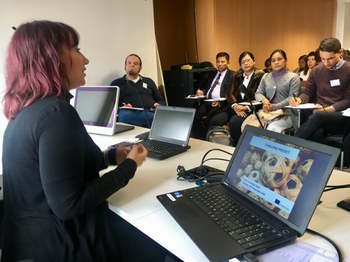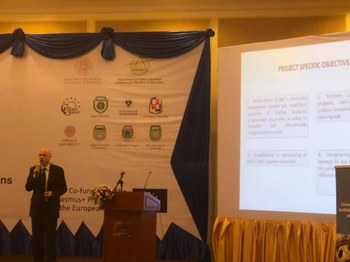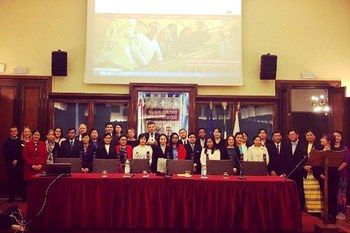CHINLONE FIFTH MEETING (Yangon, 13 July 2019)
On 13 July 2019, the University of Yangon hosted the Fifth CHINLONE Consortium Meeting. On this occasion, the Project partners had the chance to discuss the next steps to perform within the CHINLONE Project’s Work Package 3 (“Education Platform”), 4 (“International Relations Platform”), 5 (“Project’s Result Dissemination”), and 6 (“Exploitation and Sustainability Activities”).
After a recap of the activities already successfully accomplished within the CHINLONE Project’s WP2 and exposed in the latest CHINLONE Report (available at the following link: https://site.unibo.it/chinlone/it/report), the CHINLONE Partners started planning the activities to perform in the fields of education (WP3 – CHINLONE Education Platform) and of international relations (WP4 – CHINLONE International Relations Platform).
As far as the WP3 – CHINLONE Education Platform is concerned, the CHINLONE Partners agreed on six activities to perform according to the project proposal. After identifying the Task Forces’ members (click here for more information), the participants finalized the organisation of study visits specifically designed for faculty members working in the fields of: Humanities and Cultural Heritage, Economics of Tourism, and Agricultural Studies. Thanks to this study visits, Myanmar academics will have the chance to discuss how to review the curricula at their Home University thanks to the support of EU partner university. Moreover, it has been decided that Myanmar partners will take care of the organisation of Cascade trainings for spill over effect for Each Education Platform and of the Reviewing and restructuring process of course curricula that needs to be approved by the country’s Board of Studies.
Regarding the WP4 – CHINLONE International Relations Platform, the CHINLONE Partners are waiting to obtain the endorsement of the Ministry of Education to the implementation of new International Relations Offices. The WP trainings will be organized by Uppsala University that is the WP Leader. Also in this case, Cascade training for spill over effect are mandatory. Afterwards, feasibility plans for the implementation of International Relations Offices will be formulated and the Myanmar partners will establish IROs at their universities.
The last topics addressed by the meeting’s participants concerned the WP5 – CHINLONE Project’s Result Dissemination and the WP6 – CHINLONE Exploitation and Sustainability Activities. Since communication represents a vital sector in today’s world, the importance of publishing the materials produced by now within the CHINLONE Project has been stressed. In order to disseminate the results accomplished, the importance of updating the websites of the Myanmar universities of the degree courses involved has also been highlighted. As far as the Exploitation Activities are concerned, it has been suggested that the CHINLONE Project’s methodology and model will be presented on international occasions. Finally, it has been decided to organize a project activity directly targeting Myanmar students under the WP6.


